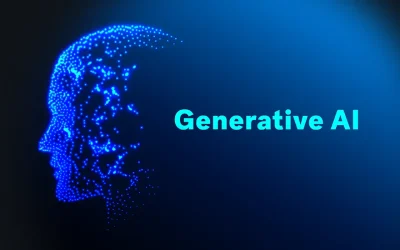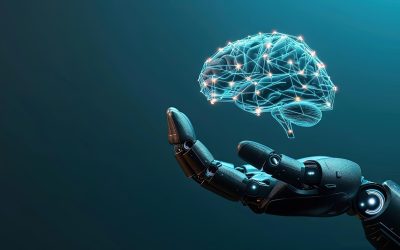Artificial Intelligence is shaping the way companies hire in 2025. Firms across healthcare, finance, education, transport, and retail are searching for workers who can use AI tools. The demand is not limited to software developers. Every worker who understands AI has a better chance to move into stable, high-paying jobs.
Why AI Skills Matter in 2025
Jobs are changing. Machines are now doing many tasks that once needed people. At the same time, these machines need people to guide them. This creates new roles that need both human thinking and AI skill.
The World Economic Forum has reported that while some jobs will fade, even more jobs will open that require AI. Workers who invest in these skills are safer and stronger in the job market. Pay is also higher for these roles, as firms compete to find people with the right mix of coding, math, and problem-solving.
In short, AI skills are no longer extra. They are now part of the foundation for many modern careers.
AI isn’t just shaping tech — it’s reshaping every job in 2025.
Magnimind shows you the skills firms pay for, with projects that land real offers.
AI Careers That Stand Out in 2025
The job market has many paths, but some AI careers are drawing the most attention. Below are the ones shaping 2025.
Machine Learning Engineer
Machine Learning Engineers build models that learn from data. They design systems that predict customer needs, suggest products, or detect fraud. For example, banks use these models to spot unusual activity in accounts, while retail stores use them to forecast what people will buy next season. In the realm of online betting, machine learning also powers tools that enhance the user experience—offering a kind of gambler’s guide to sportsbook features by analyzing player behavior, customizing bet suggestions, optimizing odds presentations, and even flagging responsible gaming alerts to create a smarter and safer betting environment.
This role is important because AI cannot work without well-trained models. Employers see these engineers as central players in their teams.
Computer Vision Engineer
Computer Vision Engineers focus on teaching computers to “see.” Their work shows up in many fields. Hospitals use it to read X-rays and MRI scans faster and with more detail. Car makers use it to build self-driving features. Farmers use it to check crops with drones.
This field blends coding with a strong sense of real-world needs. Engineers who master it can move between industries with ease.
Robotics Engineer
Robotics Engineers who use AI help build machines that handle complex jobs. In factories, robots now manage heavy lifting. In healthcare, robots can assist in surgery. In warehouses, they sort, pack, and move goods.
By adding AI, these robots adjust to new tasks without being programmed from scratch. That makes the skill valuable in any industry looking to cut costs and save time.
AI isn’t only for engineers — it’s for healthcare, finance, retail, and beyond.
Magnimind mentors teach you AI step by step, so you can grow in any field.
Natural Language Processing (NLP) Engineer
These workers build systems that understand human language. Chatbots on websites, translation tools, and smart voice assistants all depend on NLP.
Firms like airlines use it to answer customer questions fast. Schools use it to build apps that help children read. Governments use it to process large volumes of documents.
The rise of tools like ChatGPT shows how fast this area is growing.
Generative AI Specialist
Generative AI Specialists work with models that create new content. These can be texts, images, sounds, or even video. News outlets use these tools to draft stories. Marketing teams use them to design ad images. Game companies use them to build virtual worlds.
This role is expanding quickly because demand for content keeps growing. Specialists who guide these systems well can shape entire industries.
Data Scientist with AI Focus
Data Scientists study information to solve real problems. With AI, they can process huge datasets and find patterns humans might miss. Hospitals use them to predict patient needs. Online shops use them to set prices. Sports teams use them to track player performance — just as enthusiasts use tools like browse rare vintage cars calendars to stay updated on classic car events and auctions.
Their work is not just about numbers. It is about linking data to decisions that affect money, health, and growth.
AI Product Manager
AI Product Managers guide projects from start to finish. They speak the language of engineers and business leaders. They help design tools that fit real customer needs and also work well on a technical level.
This role needs strong communication plus enough technical skill to manage AI projects. The mix of planning and tech makes it one of the most attractive jobs in 2025.
Core Skills You Need
Each role has its own tasks, but the best workers in AI share some skills.
- Python Programming: Python is the main coding tool in AI. It has simple words but can handle very complex problems. People who learn Python can use it across machine learning, data analysis, and automation.
- Machine Learning Frameworks: Frameworks like TensorFlow and PyTorch make AI work easier. They offer ready-made tools for model training. This saves time and helps workers focus on solving problems, not on building from scratch.
- Data Handling: AI runs on data. Workers must know how to collect, clean, and process it. Skills with SQL, pandas, or Tableau are helpful here. Without good data handling, even the best model fails.
- Cloud Platforms: Cloud tools like AWS, Google Cloud, and Azure store and run AI systems. Firms prefer workers who can move models into the cloud. This allows them to scale fast and serve more users.
- Prompt Writing: With generative AI, the quality of prompts decides the quality of results. Workers who can design clear prompts can guide AI to produce useful, accurate outputs.
- Math and Statistics: AI is powered by math. Knowing basic probability, algebra, and statistics is key. This helps workers understand why a model makes choices and how to improve its accuracy.
AI Across Different Industries
AI skills are not locked inside tech firms. They show up everywhere in 2025.
- Healthcare: Doctors use AI to read test results, track patient records, and predict illness.
- Finance: Banks use AI to detect fraud, approve loans, and suggest investments.
- Retail: Stores use AI to predict what products will sell, set prices, and track stock.
- Transport: Logistics firms use AI to plan delivery routes. Car makers use it for self-driving features.
- Education: Teachers use AI to design lessons for each student’s needs.
- Marketing: Teams use AI to create ad text, images, and videos.
Workers who know AI can apply their skills across many of these fields.
Why Choose Magnimind Academy
Learning AI alone can feel like walking in the dark. This is where Magnimind Academy, based in Palo Alto in the heart of Silicon Valley, makes a real difference.
Magnimind is built for people who want to move forward in their careers. Our focus is on data science and data analysis, both of which are central to AI jobs in 2025.
What makes Magnimind stand out:
- Silicon Valley Location: Being in Palo Alto places students close to leading tech firms. This gives them exposure to real industry needs and connections.
- Strong Community: With over 30,000 members across seven meetup groups, Magnimind offers one of the strongest peer and mentor networks. Students can connect with professionals, share ideas, and grow together.
- Expert Mentorship: Many mentors have worked in FAANG and top-tier firms. We share not just theory, but also insider knowledge on how hiring works.
- Career Focus: The programs are built to help workers land jobs, not just gain skills. Each class links directly to what companies want.
- Online Access: Through Zoom, students can join from anywhere, making it possible to learn while still working full-time.
For someone serious about growing AI skills, Magnimind offers a bridge between learning and real career outcomes.
Ready to Get Noticed by Top Tech Companies?
Your portfolio is your ticket in. Make it speak louder than your resume.
- Learn what FAANG recruiters actually look for
- Get expert tips on structuring your projects
- Turn your GitHub into an interview magnet
Building Your Own AI Path
You do not need to master every skill at once. A good path is to pick one skill, such as Python, and build a small project. Share that project in a portfolio. Then add another skill, such as data cleaning or prompt writing. Step by step, you build proof of what you can do.
Joining a group like Magnimind’s meetups also helps. Talking with peers and mentors gives you new ideas and feedback. Over time, these connections can lead to jobs, projects, or collaborations.
Final Thoughts
AI is not just shaping tech. It is shaping every job market in 2025. Workers who learn AI skills gain stronger positions, higher pay, and more career choices.
Machine learning, NLP, computer vision, robotics, and data science all open paths for growth. The skills that matter most are coding, handling data, cloud tools, and prompt writing.
For those who want guidance and community support, Magnimind Academy in Silicon Valley offers a clear path. With expert mentors, strong community ties, and a career-focused approach, we help people move into AI jobs with confidence.
The future belongs to those who can work with AI. In 2025, the question is not if AI matters to your career. The question is how soon you will start building the skills that put you ahead.
Explore Our Career-Focused Programs
Whether you're starting out or looking to level up, choose the path that aligns with your goals.
Learn tools like SQL, Tableau and Python to solve business problems with data.
See Program OverviewBuild real projects, gain mentorship, and get interview-ready with real-world skills.
See Program Overview

